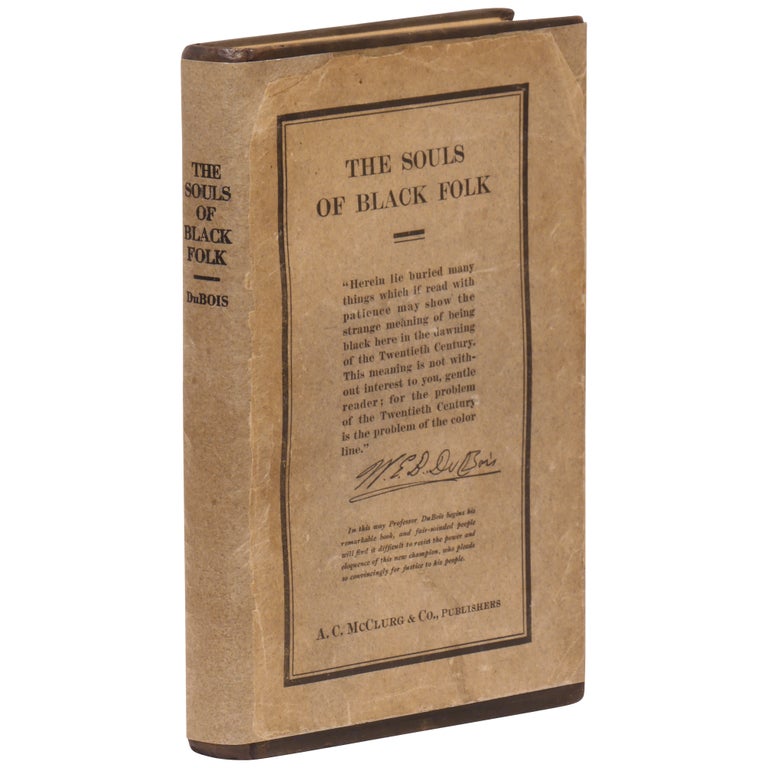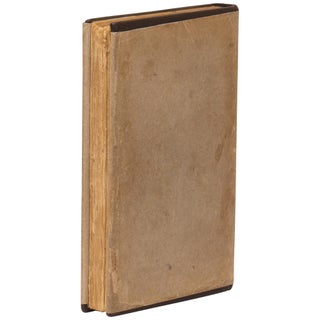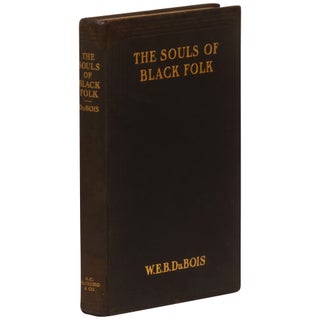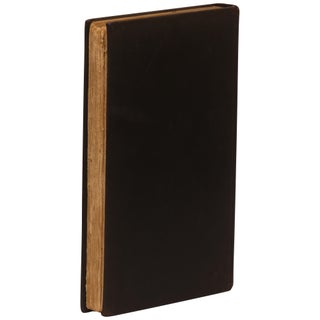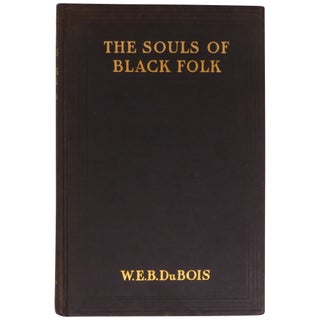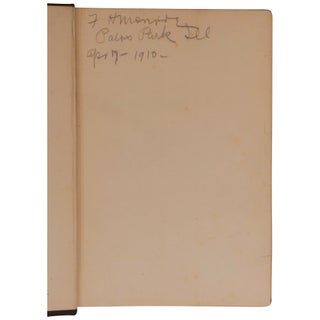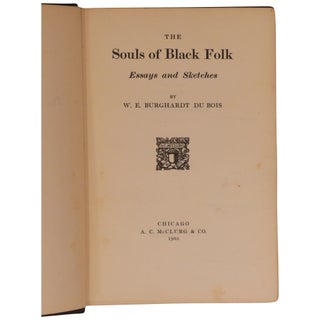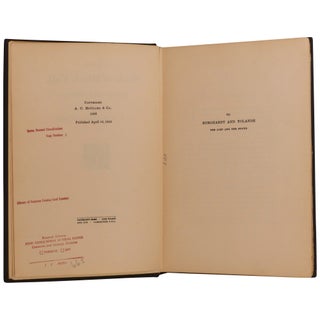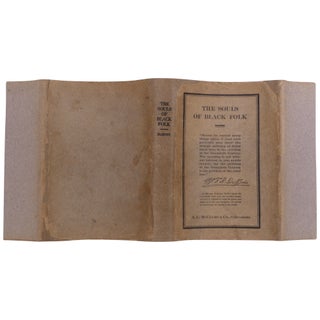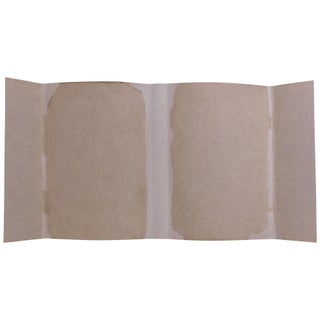An American Classic in the Rare Jacket
The Souls of Black Folk: Essays and Sketches
Notes: One of the Library of Congress's 88 Books that Shaped America: "'Few books make history and fewer still become foundational texts for the movements and struggles of an entire people. The Souls of Black Folk occupies this rare position,' said Du Bois biographer Manning Marable. Du Bois’s work was so influential that it is impossible to consider the civil rights movement’s roots without first looking to this groundbreaking work."
"It is difficult to comprehend how daring it was for W. E. B. Du Bois to publish the most acclaimed book of his career in the face of this avalanche of beastly labels rushing down onto the Negro. Du Bois stared into the grisly faces of the racist past and present and decreed that blacks were not soulless beasts.... In publishing The Souls of Black Folk, on April 18, 1903, Du Bois argued, implicitly, that the world needs to know the humanity of black folk by listening carefully to the 'striving' in their souls. And we can hear in the book the strivings in the soul of Du Bois as much as we can hear the strivings in the souls of other black folk... Today it still SHOULD BE READ AND STUDIED BY EVERY PERSON."—Ibram X. Kendi, Paris Review
ix, 265 pages.
Edition + Condition: First edition (first printing, with "Published April 18, 1903" on the copyright page). A very good copy with the ink stamp of the defunct Henry George School of Social Science on the copyright page and the pencilled ownership signature of "F. H. Monroe, Palos Park, Ill. Apr 7, 1910" on the front free endpaper. With short edge tears on three or four text leaves. Spine ends with nearly invisible paper conservation.
This copy preserves most of the rare dust jacket. The paper is acidic and the spine has perished and the flaps have separated. The jacket appears to have been trimmed top and bottom at an early date, likey to remove brittle paper from the edges. ECS Conservation deacidified the paper with calcium hydroxide and laid down the jacket pieces on Japanese tissue, replacing the missing spine section with toned paper stamped to match the spine title on the book. The conservation report is included with the book.
The dust jacket for Souls is very scarce, even rare, and the acidic paper it is printed on is surely a contributor to its scarcity. The jacket, which reprints a short section of the book along with several lines of commentary from the publisher that reveal the book's marketing aimed at a White audience (the publisher refers to African Americans as "his [Du Bois's] people", clearly a separate group from the expected readership).
The previous owner's signature is that of Fred Monroe, who served as president of the Henry George Lecture Association (see The Public, Dec. 24, 1904, p. 608). According to his obituary in Land and Freedom (Sept.–Oct. 1929), Monroe worked as a book agent by profession. It seems likely that this book went to the Henry George school after his death.
Publication: Chicago: A. C. McClurg & Co., 1903.
Item No: #308198
Sold

